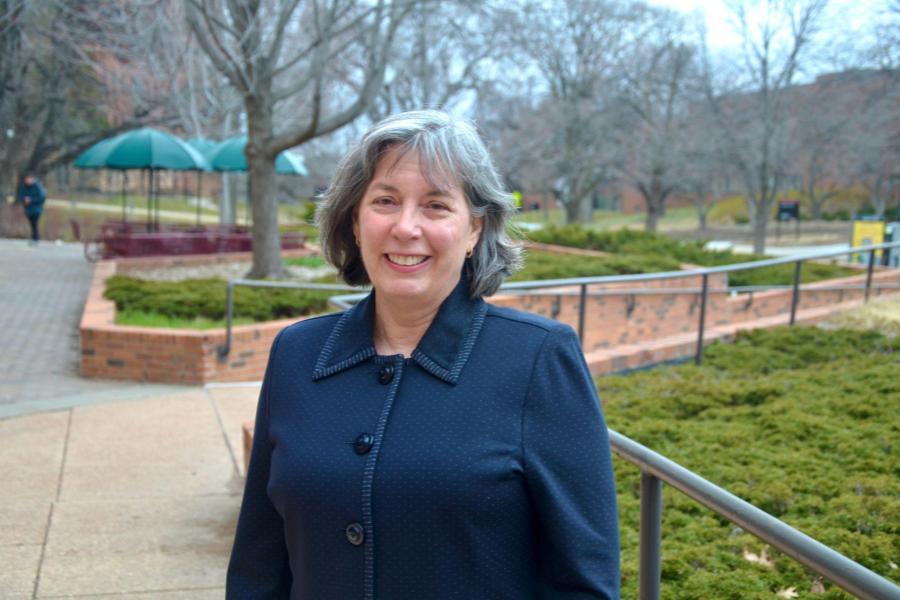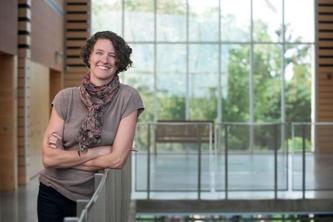
MINNEAPOLIS/ST. PAUL (10/25/2023) — National Career Development Month this November is an opportunity to grow your skill set and reevaluate your job-related goals, whether you’re a new intern, seasoned professional, or someone who is interested in changing course later in your career.
Kate Schaefers, Ph.D., L.P., director of the Osher Lifelong Learning Institute at the University of Minnesota, housed in the College of Continuing and Professional Studies, answers questions about how to navigate those later-life career transitions.
Q: How do you know it’s time to make a career change?
Dr. Schaefers: Pay attention to the big and little things. The big things — constant stress, strains on relationships, lack of opportunity in your field, a schedule that just doesn’t work — are clear shouts that it is time for a change. But also pay attention to the whispers — feeling bored and blah about the job, feeling uninspired about what you are accomplishing, or finding it hard to focus. These are all indicators that you may need to shake things up in your career. You might tweak your job by taking on a new project or new role, but it might be time for a bigger change. You don’t have to wait for a crisis to decide to make a change.
Q: What advice would you give to someone trying to identify a new career path that is a better fit for their unique personality and life goals?
Dr. Schaefers: Reflect on what you want, and what you bring to the table — but not for too long. People often get stuck in self-reflection and analysis. They try to get crystal clear about what they want, take stock of all of the skills they bring, and then go searching for the right career that is going to fit. Yet it is hard to know what a career is really like through armchair reflection and analysis.
The research of Professor Herminia Ibarra, INSEAD, France, points to a different, paradoxical strategy: Act, then reflect. Try something new, in a small way. Take a course, or take on a project or volunteer role that will stretch you in a new direction. Then reflect. Were you energized by the experience? Was it a flop? It’s useful information, either way.
Q: What challenges might someone face when changing careers later in life?
Dr. Schaefers: Ageism is real, but there are strategies to get past it. Keep your skills up to date, especially when it comes to technology. Anticipate stereotypes, and address them head on. For example, tell stories that demonstrate that you would work well with a boss who is younger and less experienced than you. If the new career is a step down and/or pays less, explain why you still want it.
People often start new careers, go back to college, and launch new businesses at midlife and beyond. Experienced adults are ideally suited to these endeavors: they bring business acumen, network connections and work skills that are needed to be successful. Age doesn’t have to be a barrier to starting something new.
Q: How can I show my skills are transferable?
Dr. Schaefers: Experienced workers bring a host of skills that managers everywhere need: critical thinking, communication, interpersonal skills, problem-solving and project management, to name a few. While these skills can be applied to a variety of positions and careers, you may need to connect the dots for potential employers. Tailor your resume and your LinkedIn profile to highlight these transferable skills. Frame your skills using terminology that resonates with the new career field.
Continuous learning is important in every industry. Make sure your core skills, especially with using technology, are current. Embrace learning, whether it is self-driven, online or in the classroom. A commitment to learning and development is essential in today’s evolving workplace.
Q: How can CCAPS at the U of M help people navigate these changes?
Dr. Schaefers: The practical and in-demand skills gained from our professional training courses can be immediately applied in the workplace and added to your resume to help you stand out. We offer a robust portfolio of graduate and undergraduate degrees, professional development courses, certificates and boot camps designed to deliver valuable tools and skills that can help you raise your profile and fuel your career. The College’s Free Professional Development Webinars are a great way to learn more and try us out. You can visit the Webinar Archive page for a wealth of tips and insights, z.umn.edu/professional-development-webinar.
Kate Schaefers is the director of the Osher Lifelong Learning Institute at the University of Minnesota, which is part of the College of Continuing and Professional Studies. She also is a psychologist, coach and educator. She coaches professionals who are transitioning into new roles, jobs and careers, and organizations that are exploring ways to tap the talent of a multigenerational workplace. A past president of AARP-MN, Shaefers currently serves on the AARP-MN Executive Council.
About the College of Continuing and Professional Studies
Established in 1913, the College of Continuing and Professional Studies (CCAPS) empowers lifelong learners to achieve their educational goals through professional courses, applied and individualized degrees and other academic pathways. With values that include Access, Learning, Inclusivity, Collaboration and Excellence, the College pursues a learner-centric environment where diverse ideas, backgrounds and identities are embraced. Learn more at ccaps.umn.edu.
About “Talking...with U of M”
“Talking...with U of M” is a resource whereby University of Minnesota faculty answer questions on current and other topics of general interest. Feel free to republish this content. If you would like to schedule an interview with the faculty member or have topics you’d like the University of Minnesota to explore for future “Talking...with U of M,” please contact University Public Relations at [email protected].
- Categories:
- Business and Management
- Work




